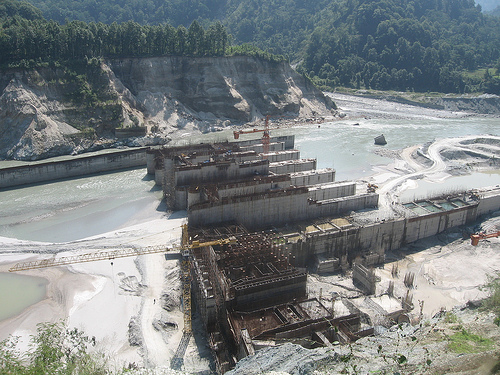September 6, 2011
Center`s anti-Paschimbanga Treaty falls flat after Chief Minister`s protest

Maa, Mati, Manush government proved again that interest of people comes first and foremost before politics. The much discussed `Teesta-water-sharing-Agreement` fell flat after Chief Minister Ms. Mamata Banerjee decided to abandon her two-day Bangladesh visit starting September 6 along with Prime Minister Manmohan Singh. The Chief Minister took the decision after going through the draft and final version of the `Teesta-water-sharing-agreement` to take place between the two countries. “I am not going“, said Ms. Banerjee who refused divulge details. The state government agreed on sharing 25,000 cusecs water but the final draft had 33,000 to 50,000 cusecs water. As per the initial talks India will take 52% and Bangladesh 48% after preserving a certain amount in the Teesta barrage.
Teesta River originates in North Sikkim and flows into Bengal. It enters Bangladesh through Jalpaiguri and meets Brahmaputra at Fulchori after flowing through Rangpur, Lalmonirhat and Gaibandha covering 124 kilometers. The project commissioned in 1976 at a cost of Rs. 69.7 crore was aimed to provide irrigation to 9.22 lakh hectares in six districts across North Bengal. The plan included 67.5 MV of hydropower. As per the initial talks India will take 52% and Bangladesh 48% after preserving a certain amount in the Teesta barrage. The project which was divided into two phases which was further divided into two sub-phases – to produce 20 MV electricity and provides water for irrigation to an estimated 66,000 hectares of land.
After talking to environmentalist and riverbed experts Ms. Banerjee decided that the treaty if was signed between the two countries then it would only add to owes of the farmers who already face scarcity of water in the area. As per the treaty Bengal would share the Teesta water with Bangladesh on a 50:50 basis, which would create severe shortage of water to irrigate the fields across North Bengal during the dry months from December to April also the time when they need water most as neither of the two country require the irrigation water between June and September as both receive heavy rainfall during this time period. According to a study conducted by the experts shows that Teesta receives nearly 70,000 cusecs of water in July which comes down to 400 cusecs in April.
